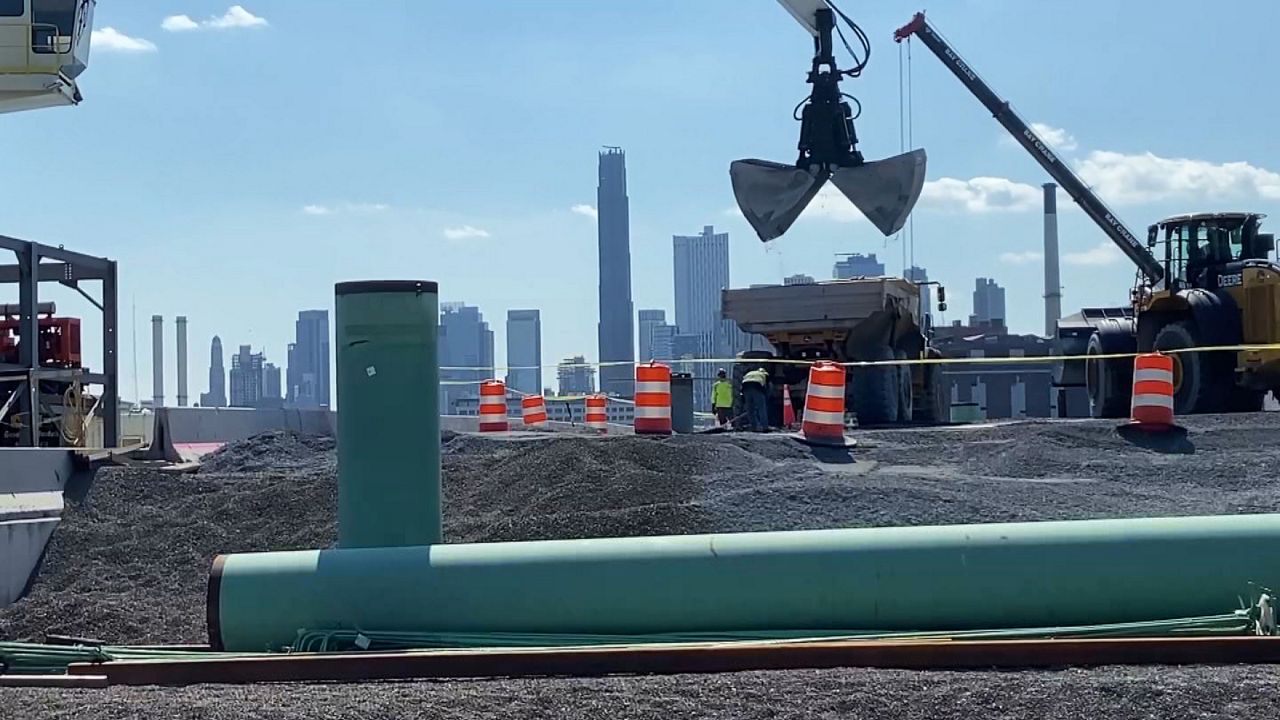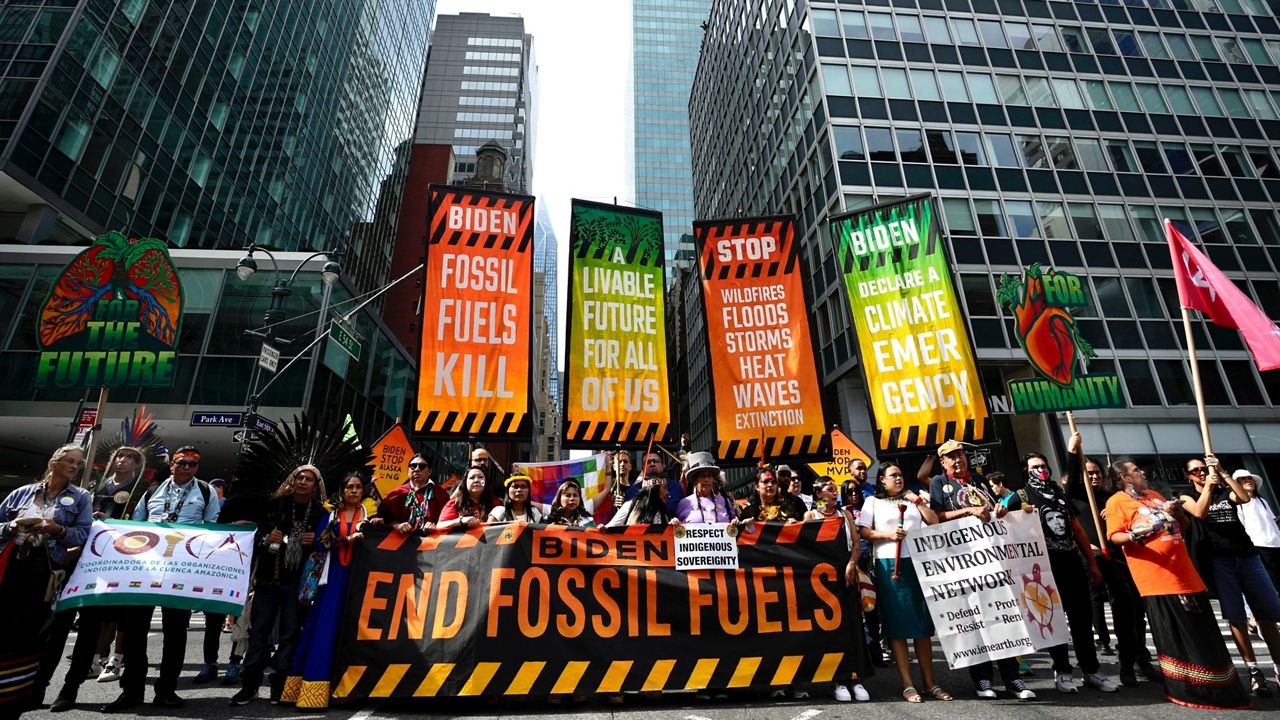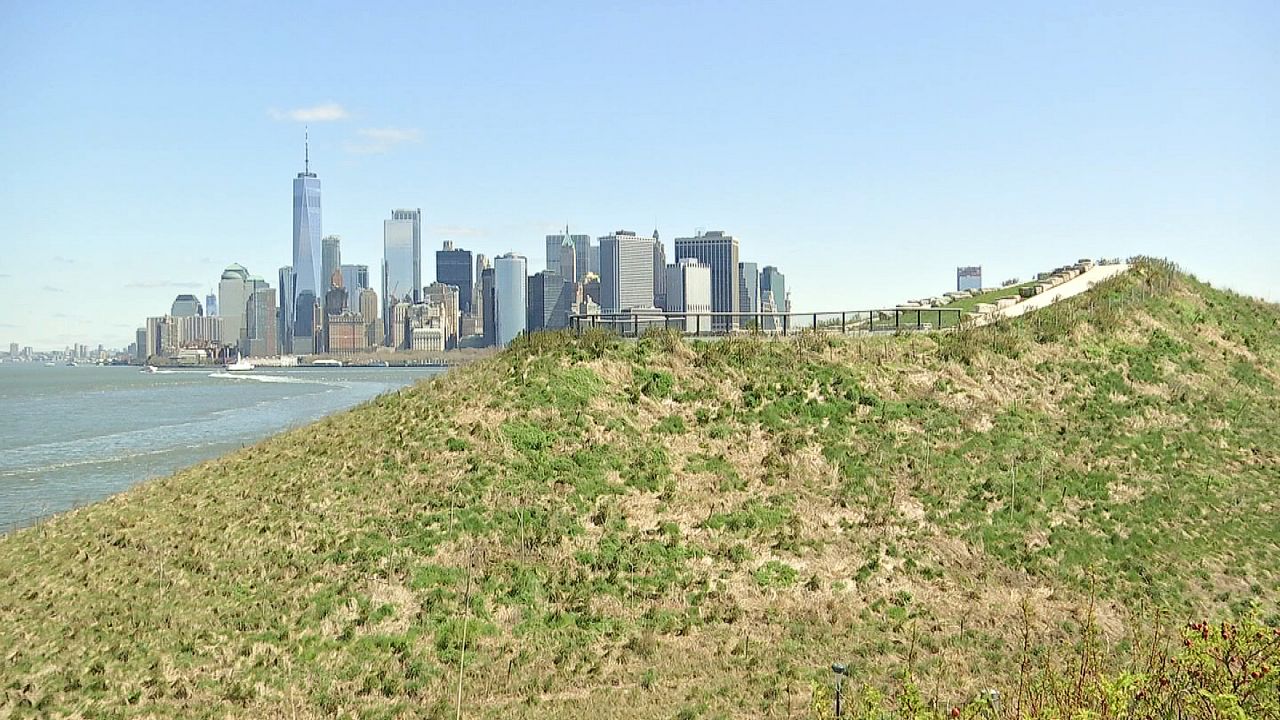In stark contrast to the celebratory countdown that marks the end of a year in Times Square, a public countdown in Union Square Saturday took on a tone that was much more bleak.
“We need to get the world, corporate, government leaders and civil society all synchronizing our climate watches, which is getting on the same timeline and making progress on systemic solutions to the crisis,” said Andrew Boyd, the co-creator of the world’s first-ever Climate Clock.
What You Need To Know
- The Union Square climate change clock debuted in September 2020
- The countdown clock dipped below the six-year mark, indicating less than six years remain to dramatically reduce fossil fuel emissions to avoid what could be irreversible effects of climate change
- Advocates stressed the importance of a global climate target of 1.5 degrees celsius, fearing any level above that could produce irreversible effects of climate change
The clock debuted in Union Square in September 2020 during the pandemic.
On Saturday, dozens of activists looked on and felt the pressure of time running out, as the clock, for the first time, indicated that less than six years remain to dramatically reduce fossil fuel emissions, to avoid what could be irreversible effects of climate change.
“Five more years to make huge possible change,” said activist Mahayana Landowne, “and to inspire everybody to participate in standing up for climate change.”
To help put things in context, many scientists believe that the uptick in natural disasters and severe weather is directly related to climate change.
For example, earlier this month, Southwest Japan experienced deadly floods and landslides in what has been described as the “heaviest rain ever” for that region.
Closer to home, President Joe Biden declared Saturday that a major disaster exists in New York state.
As a result, Biden authorized federal assistance to help with local recovery efforts, in areas across New York that were impacted by severe storms and flooding from July 9 to July 10.
“Even if there are personal things that you can do, the actions that we need to reverse the effect is not something that you should be thinking or on an individual scale or individual basis,” said Roshan Row of Bedford-Stuyvesant.
While Row expressed doubt about the public’s ability to enact drastic change on an individual level, Coco May of Flatbush says recycling, buying sustainable products and voting for candidates who support climate change measures are certainly things that can be done on an individual level to bring change.
“So vote,” said May. “Vote! Protest! Do what you can!”
Advocates stressed the importance of a global climate target of 1.5 degrees celsius — fearing any level above that could produce irreversible effects of climate change.







 Pkg Climate Activists Protest CG)

